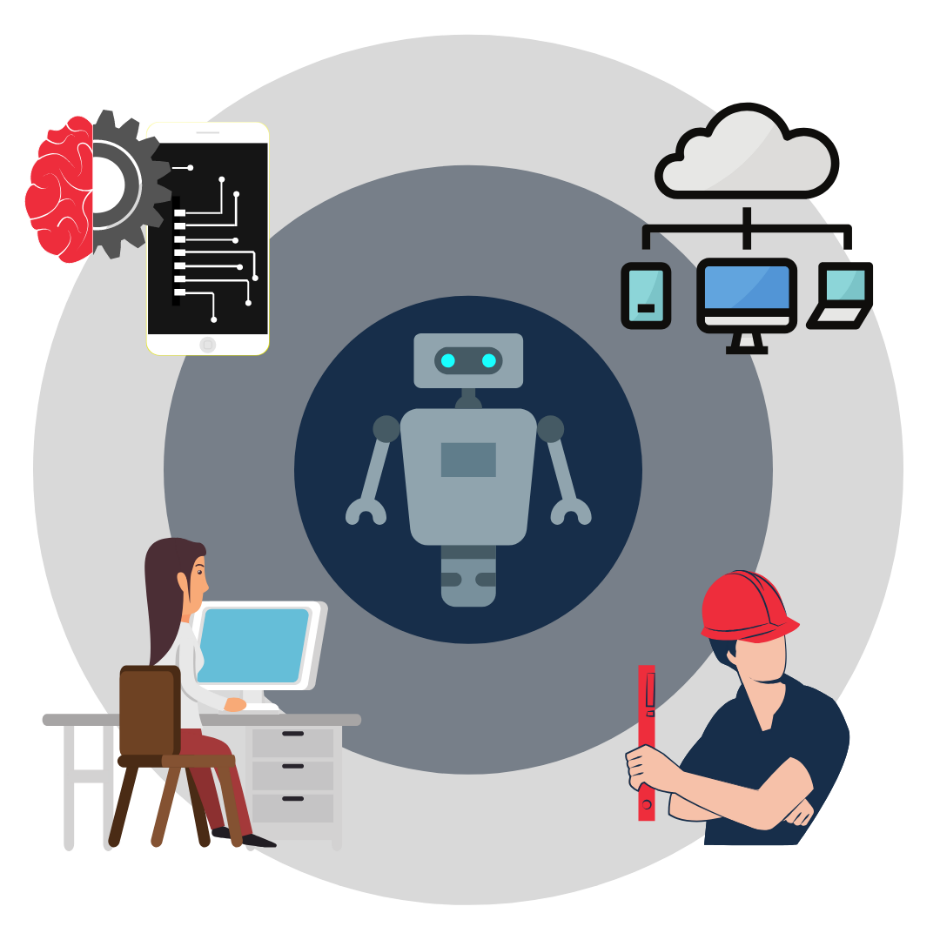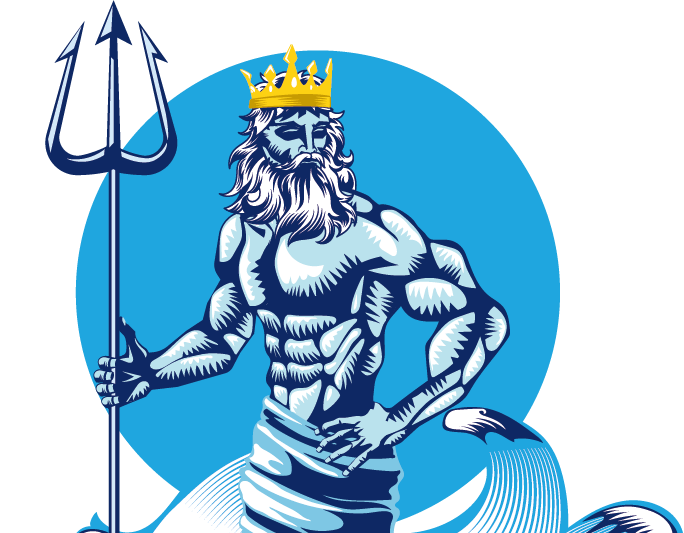Nura Jabagi is a doctoral candidate in Business Technology Management. She holds a Bachelor’s degree in Economics from Queen’s University and an MBA from the John Molson School of Business. Nura’s research is focused on the Digital Economy and understanding how technological advances coupled with macroeconomic trends are disrupting industries, businesses, and jobs. From the gig-economy to AI in the workplace, Nura aims to help organizations better prepare and manage the future of work.
Blog post
Do you have what it takes to join the Liquid Workforce?
 Image by Nura Jabagi
Image by Nura Jabagi
In recent years, rapid advancements in technology have continued to overhaul the workplace leading to a variety of tech-driven buzzwords like the Future of Work, Globalization 4.0, Telemigrants, and my personal favourite, the Liquid Workforce.
But what do all these things mean? And what does the future of work really look like? Should we be expecting to work with, or may be even for, robots in the very near future? (Spoiler alert, some people seem to think so… when you’re done with this blog, check out this Forbes piece called "In 2023 Your Boss Will Be A Robot, And You Will Love Her").
In this blog, I’ll attempt to demystify the concept of the Liquid Workforce, and what this trend means for you.
What is the Liquid Workforce?
Accenture, a global consulting company specializing in technology, coined the term Liquid Workforce to describe a form of workplace organization that relies on fluid teams of workers that come together, from anywhere in the world, to work on organizational projects.
Of course, traditional employees make up part of these teams, but the Liquid Workforce is also made up of a variety of external workers such as independent freelancers, contractors, consultants, and temp workers, as well as non-human options like robots, drones, AI and cognitive computing applications.
The defining feature of the Liquid Workforce is the use of technology to transform both people and organizations into adaptable and agile entities that can meet today’s dynamic and disruptive business environment. In short, a liquid labour strategy is about finding the right combination of internal employees, external workers and technology for each new project as companies try to optimize their competitive performance in response to fluctuating markets and demand.
Fad, fantasy or future reality?
With all the tech buzzwords floating around these days, is the Liquid Workforce just another fad, or is it here to stay? Well, according to a 2016 Randstad Workplace Report, more than 75 per cent of companies already use some form of agile worker, and 68 per cent of the employers expect that the majority of the workforce will be employed in an agile arrangement by the year 2025.
Likewise, Accenture has even gone so far as to envision the emergence of the fully liquid enterprise, an organization operating with no full-time employees outside of the C-suite, within the next 10 years. Given the unrelenting growth of the gig economy, predictions of a fully liquid enterprise become that much more plausible, perhaps even prophecies of the new normal.
Knowing that the Liquid Workforce is here to stay, what does that mean for you? And most importantly, what do you need to survive and thrive in this new talent landscape?
Protean careers and the pursuit of lifelong learning
With the rise of the Liquid Workforce and increasingly faster cycles in technology, the types of skills needed in today’s labour market are changing every day. Whether you decide to participate in the Liquid Workforce or not, most workers welcome a certain amount of fluidity and flexibility in their career path as evidenced by the fact that today the average worker is said to change jobs 12 times over their career.
In this new talent landscape, workers today must engage in lifelong learning — they need to make fundamental investments in learning, re-learning and re-skilling to maximize their employment potential and opportunities. More importantly, workers need to engage in skill-forecasting to ensure that the learning investments they make are aligned with the job market and their desired job identities, experiences and interests.
This type of career strategy is sometimes referred to as the Protean Career and, in many senses, adopting a Protean Career philosophy is an ideal training for finding satisfaction and success in the Liquid Workforce.
The word “protean” comes from the ancient Greek God Proteus. In Greek mythology, Proteus is described as a primordial sea god, noted for his ability to predict and foretell the future. Knowing all things — past, present and future — the prophetic Proteus was also said to be able to change his shape and form based on the future he envisioned.
 Photo by kisspng
Photo by kisspng
In today’s dynamic talent landscape, successful workers must master the strengths of Proteus. Simply put, workers must be constantly monitoring the job market, anticipating future trends and developments, and gaining the necessary hard and soft skills allowing them to adapt quickly to the ever-changing workplace.
Soft skills are hard currency for the liquid worker
In the fluid landscape of the liquid labour force, where agile teams of workers with a kinetic mix of expert skills work around a variety of projects, possessing specialized skillsets and deep expertise is of primordial importance.
That being said, in a world where workers are no longer siloed and confined to functional roles but expected to move fluidly between a range of teams and projects, hard skills are in fact not the top characteristic that organizations look for when hiring liquid workers.
Instead, soft skills like the ability to collaborate and communicate effectively often with people you haven’t met and don’t know are highly valued. At the same time, aptitudes like critical thinking, the ability to learn quickly and the capacity to adapt and shift gears rapidly are among those most sought-after by employers of liquid labourers. That’s because liquid enterprises are looking for workers that can evolve with their business and its needs.
Putting it all together
The Future of Work is all about humans and machines working side by side. As new innovations and technologies are integrated within the workplace, jobs are increasingly becoming “human+ roles” — jobs in which workers are empowered not only by their own skills and knowledge, but also by tech-driven capabilities.
In this world, success hinges on your ability to constantly anticipate and adapt to new work environments and technologies.
Perhaps most importantly, it is important to remember that although powerful technologies like AI and advanced robotics are set to replace and automate certain types of jobs and aspects of work, there are many jobs that these technologies can not do better than humans. Jobs that require strong human qualities like communication, empathy, critical and strategic thinking, creativity and imagination will always be best performed by humans.
In short, if you’re looking to join the Liquid Workforce or to build career equity in general, remember to be versatile and adaptable like Proteus. And don’t forget to balance investments in hard skills (especially those that help you better understand and work with technology) with high-value soft skills.
About the author


